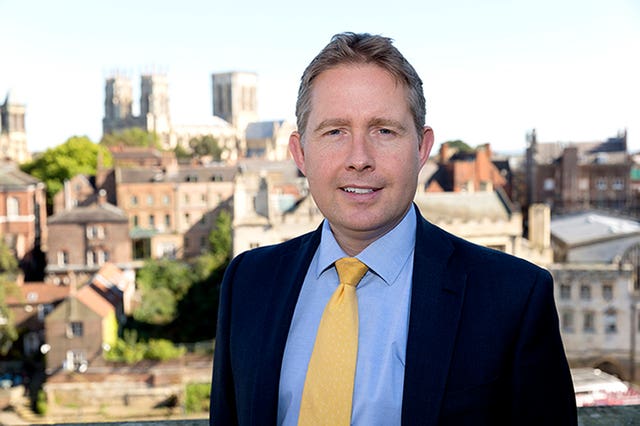
Oli Dugmore 4am - 7am
5 May 2021, 00:04

Some 24% of people in mid-life with money concerns do not talk to anyone about them, Aviva said.
One in four 45 to 54-year-olds say their total debts have increased over the past year, a survey has found.
Some had borrowed more to pay existing debt, or to help a family member, according to Aviva.
Others said interest on their outstanding debt had built up after they had taken a payment holiday on a mortgage or other credit.
More than three-quarters (78%) of 45 to 54-year-olds surveyed worry about the level of debt they have accrued.
While 26% in this group speak to their partner or spouse about money worries, 24% do not talk to anyone.

Nearly a fifth (18%) feel their debt is out of control when it comes to paying off borrowing built up during the pandemic. Some put this feeling down to reduced income, while others said it was due to poor financial skills.
Alistair McQueen, head of savings and retirement at Aviva, said: “Those in mid-life represent the least happy and most anxious age group in the UK – balancing their own needs with younger and older members of their family, and we know that when people feel their debt is out of control it causes huge anxiety.
“What’s important to remember is that there is a range of completely free, confidential and impartial services available to help you if debt is becoming a problem. Whatever level of debt you’re in, organisations like StepChange, Money Advice Service and CAP (Christians Against Poverty) are qualified to point you in the right direction.
“You can also download Aviva’s free Mid Life MOT app – specifically designed to help those aged 45-plus to take stock of their current situation, with a self-led check-up on their wealth, work and wellbeing. By taking control of these different aspects of our lives at regular intervals we will hopefully all be better placed, whatever 2021 brings.”
The research also found regional variations. In the West Midlands, around a third (34%) of people generally said their debt has increased over the past year, while in Scotland the figure was much lower, at 18%.
Across all age groups, 70% of people worry about their debt, ranging from 75% in the north east of England to 63% in the East Midlands.
Despite an increase in debt levels during 2020, the 45 to 54-year-old age group did more than any other age group to resolve their money problems, the research suggested.
Aviva said nearly a third (31%) had cut back on non-essentials like luxury goods, holidays and entertainment, rising to 33% in Scotland, versus 26% among all age groups on average across the UK.
A quarter had cut back spending on food and non-alcoholic drinks, against 18% across all age groups.
And 17% had sold possessions, versus 12% of people generally.
Some 12% of 45 to 54-year-olds had bought a lottery ticket, although the age group most likely to have done this was 35 to 44-year-olds, with 18%.
More than 2,000 people were surveyed in March.
The UK Government launched a new breathing space scheme this week to give people facing financial difficulties space to receive debt advice, or mental health crisis treatment, without pressure from creditors or mounting debts.
People across England and Wales who are struggling to repay debts could be eligible, and the Government expects 700,000 people to benefit in the first year of the scheme.
People will be given legal protections from their creditors for 60 days, with most interest and penalty charges frozen, and enforcement action halted. They will also receive professional debt advice.
The protections will also be available for people in mental health crisis treatment, for the full duration of their treatment plus another 30 days.
The breathing space scheme can generally be accessed by contacting a professional debt adviser. For people with mental health conditions, an approved mental health professional can certify they are receiving treatment and a debt advice provider can consider if they are eligible.